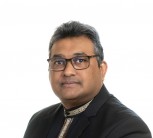The Department of Science of Religion in the Faculty of Theology at the University of Pretoria (UP), in association with the Muslim Education Institute Trust (MEIT), recently held a conference on one of the Timbuktu Manuscripts, viz the text dealing with Alexander the Great and Dhul Qarnain. Of particular interest was the question who exactly Alexander the Great was, and whether or not he was the same person as the Qura’anic figure of Dhul Qarnain – literally, the two-horned one. (Alexander’s iconic crown bore two horns.)
The conference was a precursor to the launch of two books featuring translations of two of the original manuscripts.
As indicated by the name, the Timbuktu Manuscripts hail from Mali. They date from the Golden Age of Timbuktu centuries ago and were kept intact because they had been hidden in walls and jars.
The manuscripts are hand written in an Arabic dialect. Two of them were translated by a small team of experts led by Sheikh Abdul Hamid Fernana from the University of the Free State and Asgar Mukhtar, together with UP’s Dr Maniraj Sukdaven who did the editing. The project forms part of the African Written History Preservation initiative promoted by former President Mbeki and the Thabo Mbeki Trust.
Timbuktu once was a world-renowned centre of learning. Indeed, some of the world’s oldest universities are found in North Africa and religious studies, science, medicine and art could be studied there. Students even came from Europe to study in North Africa. The Timbuktu Manuscripts have contributed to reinstating the dignity of Africa after centuries of colonialism that sought to destroy African intellectual heritage.
The first translated and edited text deal with Alexander the Great, the Alexander Romance and the legend from an African perspective. Scholars in Timbuktu held a favourable view of Alexander the Great and associated the Alexander legend with the figure of Dhul Qarnain. The second text deals with diseases both manifest and hidden, and contains ancient African knowledge of medicine and psychiatry.
During the conference, a visiting scholar from Stanford University, Prof Shahzad Bashir, expounded on the Islamic view of Dhul Qarnain and Alexander the Great through the ages as depicted in literature and art originating in Spain, Africa and even Japan. Dr Sukdaven positioned the manuscripts in the tradition of the Alexander Romance and paid special attention to the motif of Gog and Magog in relation to the legends of Dhul Qarnain and Alexander the Great.
Prof Dolf Britz from Yale University’s Divinity School, gave an historical perspective on Alexander from Macedon (aka Alexander the Great) and discussed how important he was to early Christians who used his reign as a measure of time.
Sheikh Muhammad Yahya Ninowy, Dean of the Madina Institute, presented an alternative view by looking at the historical narrative of Alexander the Great versus the theological narratives in an attempt to reconcile the series of legends on Alexander the Great’s mythical exploits.
Sheikh Abdul Hamid Fernana from the University of the Free State expounded on Timbuktu as a centre of world knowledge, and explained how the scrolls lent credence to the fact that African scholars held Alexander the Great, Aristotle and Olympia in high regard.
In closing the conference Dr Essop Pahad said the purpose of South Africa’s involvement with the preservation and housing of the manuscripts was to give back to Africa its dignity and pride by creating a repository of universal knowledge that transcend all barriers.
The Laudium Sun newspaper recently featured an article about the Memorandum of Understanding that has been signed by the Department of Science of Religion and Missiology in UP's Faculty of Theology and the Muslim Education Institute Trust, which resulted in the launch of the Timbuktu Project (soon to be renamed African Intellectual Written Heritage).
Click here to view the article.
See related photo on right sidebar.
Dr Maniraj Sukdaven
October 27, 2015

Prof Maniraj Sukdaven completed his undergraduate studies at the University of Durban-Westville, now the University of KwaZulu-Natal, and has been doing research at the University of Pretoria (UP) for seven years.
He says his field of research contributes to the betterment of the world because religious intolerance, although not new, is still one of the greatest contemporary issues that leads to religious violence in different forms. “By engaging in interreligious dialogue, a platform is created where differences can be addressed, solutions found and social cohesion promoted,” he says. “Although the three Abrahamic religions seem to be the focus of many interreligious dialogues, especially within Scriptural Reasoning, the contribution added to this dialogue is the inclusion of Hinduism and African Traditional religions, especially when focused on the African continent.”
He publishes articles on interreligious dialogue and social cohesion in his personal capacity. Prof Sukdaven is also working on two focused areas in his discipline via his postgraduate students who are researching different aspects of Hindu philosophy and African Traditional religion.
Prof Sukdaven will be leading a research team on the subject of religion-inspired violence. Also, a centre within the Department of Religion Studies – the Oxford Centre for Religion, Public Life and Security in Africa – will soon be established. The constitution has been adopted and implementation of the programmes related to this study will begin in 2022. The research programme will have its genesis with a consultation by international experts on countering religion-inspired violence.
This consultation aims to:
• explore the causalities as well as methodologies and consequences of religion-inspired violence throughout the centuries;
• learn about this sort of violence in religious and secular traditions throughout the world today, with a particular focus on Africa; and
• formulate a response to counter such violence through peacemaking, peacebuilding and reconciliation; scriptural reasoning; de-radicalisation programmes; the relevance of the just-war theory, etc.
With the establishment of the centre, Prof Sukdaven will be working closely with relevant centres in the faculties of Humanities, Law and Education.
A recent highlight for the professor was working with a team of experts on translating a few Timbuktu Manuscripts. The team published articles and three books, and an international conference took place to address the question of the “two-horned one” found in one of the manuscripts. This is a reference to a piece of text about Alexander the Great and the Qura’anic figure Dhul Qarnain, and the question of whether or not Alexander the Great was the same person as the Dhul Qarnain – literally the “two-horned one”. (Alexander’s iconic crown bore two horns.) Two of the books that were published were presented to the Unisa Library by former president Thabo Mbeki.
As to whether a specific event or person inspired him in his research effort, Prof Sukdaven says he’s had first-hand experience of religious intolerance after being the target of an attempted assassination plot by a particular religious sect. “I realised it was as a result of religious intolerance, which needed to be addressed,” he explains. “I then became involved in leading a team of religious leaders to address religious intolerance in our community. This boded well for all, to the extent that it led to, not so much social cohesion, but to religious tolerance, which in my view is not the ideal, but a road towards acceptance and appreciation of other beliefs and practices. This led me to engage in research in the field of interreligious dialogue.”
Prof Sukdaven says he does not really have an academic role model. Although, in his research, he found the following excerpt from the 12th Edict of King Ashoka Mauryan (304 BCE-232 BCE) inspiring: “Growth in essentials can be done in different ways, but all of them have as their root restraint in speech, that is, not praising one’s own religion or condemning the religions of others without good cause. And if there is cause for criticism, it should be done in a mild way. But it is better to honour other religions for this reason. By so doing, one’s own religion benefits, and so do other religions, while doing otherwise harms one’s own religion and the religions of others.”
“These words accelerated my research in interreligious dialogue, which included, among others, Scriptural Reasoning as a form of interreligious dialogue,” he says.
Prof Sukdaven hopes that through his research he will make a contribution to various societies and religious communities to live in peace and harmony irrespective of their religious beliefs. His research matters because it adds value to humanity for the flourishing and fullness of life when issues such as religious violence has caused many deaths and crimes against humanity. “Interreligious dialogue can promote peace and harmony for religions to coexist,” he says.
In South Africa, violence can be racially, religiously or prejudicially charged. As such, Prof Sukdaven’s advice to school learners interested in his field of study is that research in interreligious dialogue, with the aim of social cohesion, will assist in unlocking ethics, morals and values in the promotion of peace and harmony.
In his spare time, Prof Sukdaven enjoys watching sports such as rugby, cricket and soccer. He has an interest in community development and is involved in setting up a community project for subsistence and commercial farming for the indigent community of Mamelodi.
 Story
Story
The latest issue of the University of Pretoria’s award-winning RE.SEARCH magazine is available now and reflects a shift towards both a fresher design and outlook. This edition is curated under the theme ‘Digital’, and offers a glimpse into some of the fascinating research we’re doing at UP to drive digital leadership and innovation.
 Story
Story
The articles in this edition showcase work from all nine of our faculties, and underscore our University’s slogan ‘Make today matter’. RE.SEARCH has been named South Africa's top corporate publication as the winner of the 2024 SA Publication's Forum Awards. It is a runner up and finalist in the Excellence category for Communication (runner up), Design and Photography (finalist) and the...
 Story
Story
RE.SEARCH 9 is our most novel edition yet. In it, we have featured research that encourages us to think afresh, and is doing so, we’ve highlighted new ways of looking at research. You can expect to read about research that has potential and promise for the future but which is still nascent or represents an educated guess. This edition also features a range of multimedia that you can immerse...
Copyright © University of Pretoria 2025. All rights reserved.
Get Social With Us
Download the UP Mobile App